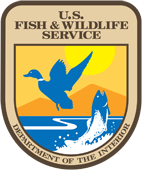Improve PKD diagnostics and assess the impact of Tetracapsuloides bryosalmonae infection on North American salmonids
Strategic Priority
Conservation & Science - Fish and Wildlife Health (“One Health”)
Project Documents
No project documents available.
Project Description
Changing ecosystems expose fish to emerging pathogens, threatening wild and enhanced populations. Proliferative Kidney Disease (PKD)is an emerging challenge for fisheries management, a severe immunopathology causing seasonal mortality outbreaks and predisposing the fish host to other infections. The myxozoan parasite Tetracapsuloides bryosalmonae impacts salmonid management in North America through its two-host lifecycle, with bryozoans releasing waterborne malacospores infectious to susceptible salmonids. Climate change is enhancing the parasite lifecycle reproducibility regarding the higher release of infectious spores and higher virulence to fish hosts, hence its recent ability to expand its fish host range. Indeed, an increasing incidence of PKD and parasite detections has been recently shown in many northern areas, including Scandinavian countries, Iceland, and Alaska. We confirmed novel evidence that T. bryosalmonae is spreading between salmonids across the US, with PKD emerging northward and affecting various wild salmonids. To deal with this emerging threat, it is fundamental to improve PKD diagnostic tools to better understand the pathobiology of T. bryosalmona infections across a range of salmonid species with variable grades of susceptibility. The conventional monoclonal antibody (MAb), which had been used for decades, was published in 2000 when knowledge and genomic information on T. bryosalmonae were still scarce.
Furthermore, it only works for immunohistochemistry(IHC). Thus, little is known about which North American salmonid species can tolerate the parasite’s lifecycle, which is resilient to PKD, or who have life histories that cause exacerbated parasite replication with high mortality. This knowledge is needed to inform the implementation of suitable surveillance programs and integrated pest management strategies, leading to the development of treatments and preventive vaccinations against PKD, which are still unavailable. Data on the prevalence of T. bryosalmonae in Montana/Idaho water samples have been generated since 2016 after a widespread fish kill event in the Yellowstone River. The Great Lakes region has limited information from old surveys on fish parasite detection. In contrast, data from opportunistic fish health assessments and preliminary observations are only available from Alaska. Due to the lack of standardized diagnostic tools, T. bryosalmonae is not included in routine fish health monitoring programs.
We will improve PKD diagnostic techniques (Objective 1) and assess North American salmonid species susceptibility/tolerance patterns to PKD pathobiology(Objective 2). An ELISA and a new IHC protocol will be optimized for accessing archived infected samples from Montana/Idaho and Alaska. These new methods will be published in international scientific journals, and we will update the AFS-FHS Blue Book’s outdated PKD chapter for official testing implementation. We will target seasonal PKD surveillance in the Great Lakes region, Montana, and Alaska by combining conventional (PCR, histology) with innovative (ELISA, IHC) diagnostic tools. New diagnostic methods and study results will be presented at national and international meetings and delivered by newsletters and webinars. Our communication will be reinforced by sharing summary articles in stakeholder magazines and social media platforms of suitable Non-Governmental Organizations (NGOs) such as Trout Unlimited, the regional fish and wildlife associations, and state fisheries agencies. This study will generate fundamental knowledge on fish species susceptibility, categorized as tolerant of parasite propagation, resilient to T. bryosalmonae, or highly susceptible to exacerbated parasite replication, resulting in mortality. Prophylactic and treatments against PKD are not yet available; therefore, improving PKD monitoring and discovering new ecological niches for strategic stocking will immediately inform actionable management solutions.
Project Facts
- Organization Name: Michigan State University
- Organization Status: Public Institution Of Higher Education
- State: Michigan
- Obligation: $145,844
- Start Date: 01-01-2022
- End Date: 12-31-2022


